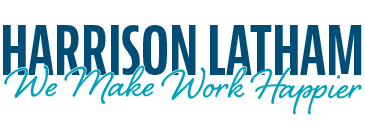Effective leadership is a cornerstone of a thriving workplace, and a growing body of research highlights the crucial role that coaching plays in developing leaders who foster employee happiness. Coaching not only enhances individual leadership skills but also cultivates a supportive environment where employees can flourish. This blog post delves into how coaching contributes to building leadership that champions employee well-being and provides actionable strategies for HR leaders and executives.
The Impact of Coaching on Leadership Development
Leadership is a pivotal factor in shaping workplace culture and employee satisfaction. Coaching has emerged as a powerful tool in developing leaders who not only excel in their roles but also create environments where employees feel valued and supported. Research shows that coaching can significantly enhance leadership capabilities, which in turn positively impacts employee happiness.
Emotional Intelligence Enhancement
One of the most significant benefits of coaching is its impact on emotional intelligence (EI), a critical component of effective leadership. TalentSmart research indicates that leaders who receive coaching experience a 19% increase in their EI scores. Emotional intelligence encompasses self-awareness, self-regulation, empathy, and social skills—qualities that are essential for creating a supportive work environment.
Leaders with high emotional intelligence are better equipped to understand and respond to the needs and emotions of their employees. This fosters a culture of empathy and respect, leading to increased employee satisfaction and engagement.
Increased Employee Satisfaction
Coaching not only improves leadership skills but also has a direct impact on employee satisfaction. A study published by Harvard Business Review found that organizations with leaders who receive coaching see a 67% increase in employee satisfaction. This is because effective leaders are more likely to provide clear communication, set achievable goals, and offer constructive feedback—key factors that contribute to a positive work environment.
Implementation of Supportive Practices
Effective coaching helps leaders develop supportive practices that enhance employee happiness. According to the International Coaching Federation (ICF), leaders who engage in coaching are 25% more likely to adopt practices that support employee well-being, such as recognizing achievements, providing growth opportunities, and ensuring work-life balance.
Supportive leadership practices are linked to higher levels of employee engagement and retention. Employees who feel supported by their leaders are more likely to stay with the organization and perform at their best.
The Financial Impact of Coaching
Investing in coaching yields significant financial returns for organizations. The International Coaching Federation reports that companies see a 32% increase in leadership effectiveness and a 23% improvement in employee retention as a result of coaching interventions. Additionally, MetrixGlobal data shows that employees whose leaders participate in coaching experience a 39% increase in engagement and a 33% improvement in performance.
These improvements translate into tangible benefits for organizations, including reduced turnover costs, higher productivity, and improved overall performance. Coaching is not just an expense but a strategic investment that drives organizational success.
Enhancing Leadership Effectiveness
Coaching helps leaders develop critical skills that are essential for creating a positive work environment. These include effective communication, conflict resolution, and strategic thinking. By enhancing these skills, leaders can better navigate challenges, support their teams, and drive organizational goals.
Leaders who are well-coached are better equipped to handle complex situations and make informed decisions. This leads to a more stable and productive work environment, where employees feel confident and motivated to contribute their best.
Strategies for Implementing Coaching Programs
To maximize the benefits of coaching, HR leaders and executives should consider the following strategies for implementing effective coaching programs:
1. Tailor Coaching to Individual Needs
Coaching should be personalized to address the specific needs and goals of each leader. By identifying areas for improvement and setting clear objectives, coaching can be more impactful and aligned with organizational goals.
2. Incorporate Regular Feedback
Regular feedback is essential for the success of coaching programs. Leaders should receive continuous feedback from their coaches, peers, and team members to track progress and make necessary adjustments.
3. Measure and Evaluate Outcomes
To assess the effectiveness of coaching programs, organizations should measure key outcomes such as employee satisfaction, engagement, and performance. Using data to evaluate the impact of coaching helps demonstrate its value and identify areas for further development.
4. Promote a Coaching Culture
Encouraging a coaching culture within the organization helps integrate coaching into everyday practices. Leaders at all levels should be encouraged to seek coaching and support their team members’ development through coaching.
5. Provide Ongoing Support
Coaching is most effective when it is part of a continuous development process. Organizations should provide ongoing support and resources to ensure that leaders continue to grow and apply their coaching insights.
The Role of Coaching in Shaping Leadership
Coaching plays a crucial role in developing leaders who create environments that support employee happiness. By enhancing emotional intelligence, improving leadership skills, and promoting supportive practices, coaching helps leaders foster a positive and productive workplace.
The financial and organizational benefits of coaching are substantial, with increased employee satisfaction, engagement, and performance. As organizations continue to prioritize employee well-being, investing in coaching for leadership development is a strategic move that drives long-term success.
By implementing effective coaching programs and fostering a coaching culture, HR leaders and executives can build leadership that not only excels in driving organizational goals but also supports and nurtures a happy, engaged workforce.
Key Insights
- Coaching enhances emotional intelligence: Leaders who receive coaching demonstrate a 19% increase in emotional intelligence, crucial for fostering a positive work environment (TalentSmart).
- Improved leadership skills boost employee satisfaction: According to a study by Harvard Business Review, effective coaching leads to a 67% increase in employee satisfaction.
- Coaching promotes supportive leadership: Leaders who engage in coaching are 25% more likely to implement supportive practices that enhance employee happiness (ICF).
- ROI of coaching is significant: Companies experience a 32% increase in leadership effectiveness and a 23% boost in employee retention following coaching interventions (International Coaching Federation).
- Coaching drives engagement and performance: Employees report a 39% increase in engagement and a 33% improvement in performance when their leaders participate in coaching (MetrixGlobal).
 Want to learn more about the potential impact of coaching on your leadership team? Contact Harrison Latham! Collectively, our coaches have over 500 years of experience coaching executives, leaders, new managers, and individual contributors. Unlock your leadership potential—schedule a free consult with us today and start transforming your organization today!
Want to learn more about the potential impact of coaching on your leadership team? Contact Harrison Latham! Collectively, our coaches have over 500 years of experience coaching executives, leaders, new managers, and individual contributors. Unlock your leadership potential—schedule a free consult with us today and start transforming your organization today!

